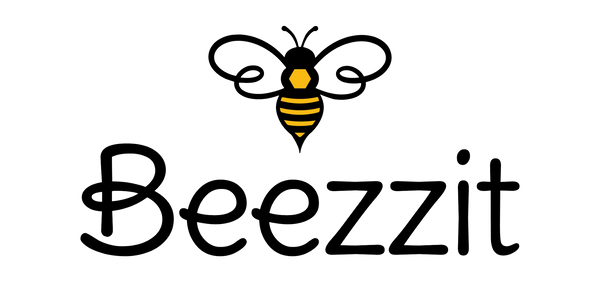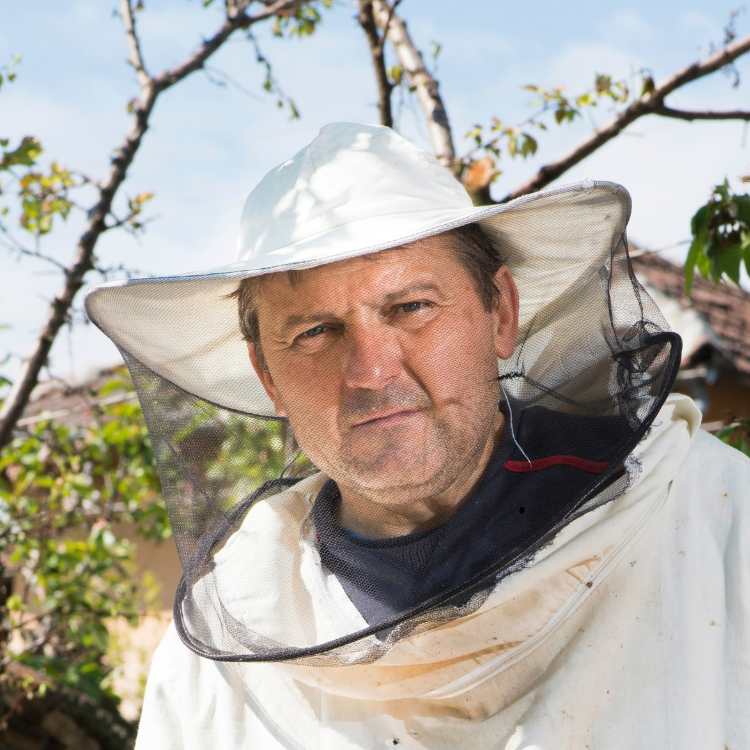“Bees get food from plants, so basically they’re herbivores, right? But, bees also feed meat to their babies!”
Let’s get to the bottom of this because these are some common misconceptions about whether bees are herbivores, carnivores, omnivores, or something else.
We usually think bees only pollinate plants, gather honey, and love flowers, but there’s more to it than that. And the question is, “Are bees omnivores?” The answer is more complex than you might think. Wanna know why?
Bees are known for their ‘plant-based’ diets. Yes! They’re not the only ones on a diet, too! Some bees are in between; they eat plants or animals (which sounds a little weird). Aren’t you curious about what bees eat and whether they’re omnivores? Let’s uncover their bee-little secret!

Bee on a sunflower
It’s All About the Basics: Are Bees Omnivores?
To answer the question, “Are bees omnivores?”, we need to know what an omnivore is first. Omnivores are animals that consume both plant-based and animal-based foods. Most bees are classified as herbivores because they eat nectar and collect pollen from flowers. However, some bees don’t follow this pattern, making us wonder if bees are omnivores.
So, are bees omnivores? Well, the answer is NO. Most bees stick to their usual plant-based diets. However, some bees consume animal-based materials or even show behaviors that hint they might be a little omnivorous.
The Primary Diet of Bees: Nectar and Pollen
Nectar is a sugary liquid found in flowers that gives bees energy from carbohydrates, like rice! Then, pollen supplies protein and nutrients that bees use to feed their larvae or baby bees. Since bees rely on these plant-based foods, they are usually seen as herbivores.

Bee on a daisy
There is an Exception to the Rule! (Carnivorous Bees)
There are also bee species that don’t fit the usual herbivore label. For example, the Trigona hypogea, a.k.a. the vulture bee from Central and South America, eats dead animals. Yes! Instead of living off plants, they turn rotting meat into a honey-like substance to feed their young. Now, let me ask you again, are bees omnivores?
Although vulture bees consume animal-based material, they are an exception. For these species, their diet sets them apart from the majority of their bee cousins who stick to nectar and pollen.

A photo of a Vulture Bee
Bees and Honey: An Interesting Twist
Did you know that bees have a diet? You’re not the only one who’s on a diet! Guess what? Honey made from nectar is their diet!
Honey is produced by bees by changing nectar into simple sugars and storing it for times when the flowers do not grow well. While honey is a plant-based product, the way it is made and the enzymes produced by the bees make you ask again, are bees omnivores if they use their own process to create food?
This unique aspect of their diet is something that makes bees even more fascinating and helps us understand them better.

Honey bees on a honeycomb
The Role of Bees in Ecosystems
Even though people are still wondering, "Are bees omnivores?" one thing is clear: bees play an important role in our ecosystems. Whether they gather nectar, pollen, or even some animal-based stuff, bees are key to pollination. Pollination helps plants to grow and make food for us to eat, and it keeps the environment balanced. We all want that!
The Human Impact on Bee Nutrition
Human activities, like farming and building cities, have a huge impact on bees and their food sources. Bees are forced to adapt as their natural habitats are destroyed, and they even rely on us, humans, for food. This could be the reason why some of their behaviors make people wonder, are bees omnivores?
Wildflower loss and the rise of pesticides are also pushing bees to find new food sources, leading them to act in ways that are unusual for their kind. Right?
Bee Babies: The Meat-Eating Secret!
Another reason why people ask “Are bees omnivores?” is because of the way bee larvae (bee babies) are fed. Adult bees usually focus on nectar and pollen, while some bee larvae eat a different diet. For example, honeybee larvae sometimes get royal jelly (yes, royal), which contains proteins and fats made by worker bees!
This isn't directly plant-based, right? Okay, now it’s confusing if bees are omnivores, isn’t it?
To add to that, some solitary bees even hunt small insects and spiders to feed their young. While this behavior is rare, it does make you think more about the question: are bees omnivores?

Bee larvae
We’ve laid out some pros and cons here so that we’ll see the difference and come to a conclusion, of course!
Pros: The behaviors bees show indicate they’re adaptable for survival in our changing environment! Plus, their complicated diets give us more reason to study their behaviors.
Cons: Sadly, some of these changes usually happen because of what we, humans, do to their homes, and that is NOT good for our bees! When we make them switch up their diets, it can hurt their health and mess up the ecosystems they help support.





